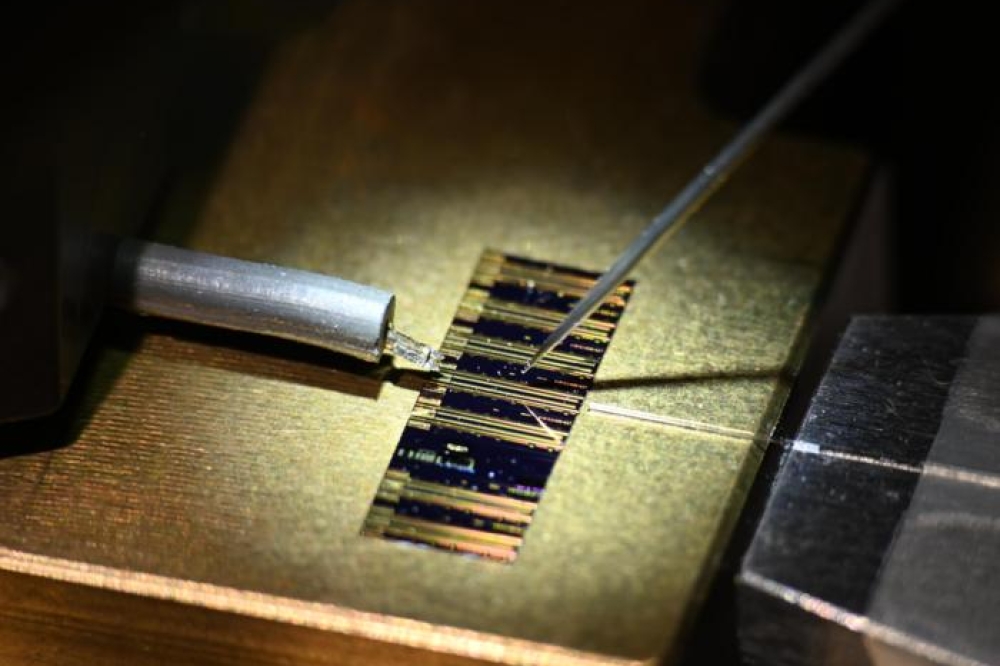News Article
Cambridge Nanotherm & Optocap ship first Chip-on-Heatsinks to LED firm
The joint technology was chosen for its outstanding thermal performance, reduced costs and simplified supplier management and assembly
Cambridge Nanotherm is partnering with Optocap, an advanced microelectronic and optoelectronic packaging design and assembly company.
Together, the companies have shipped what they say is the first ever Chip-on-Heatsink modules to a customer in the LED industry.
“As a design and assembly service provider we need to ensure we specify materials that will enhance our customers’ products,” says David Ruxton, CEO of Optocap. “We specified Cambridge Nanotherm’s technology due to the outstanding thermal performance it enables. It also means a reduced bill of materials, simplified supplier management and easier assembly for our customer.”
Cambridge Nanotherm’s core IP is a unique process for converting aluminium into alumina. The process allows the surface of any aluminium object to be converted into a dielectric layer.

Cambridge Nanotherm & Optocap exploded LED module
In the case of the Chip-on-Heatsink approach, an extruded heat sink or heat pipe can be coated and then metallised with the end user’s circuit design. Nanotherm’s technology enabled Optocap to utilise its manufacturing processes and allow direct assembly of die and surface mount components onto the heat sink, creating a fully integrated module.
This approach gives a number of benefits for LED lighting customers. For those using conventional PCB materials and heat sinks, the advantages are three-fold.
Firstly, a cost reduction is seen by the removal of both the MCPCB and thermal interface material (TIM) components.
Secondly, the removal of these layers give the most efficient thermal path between component and heat sink.
Finally, as a result of minimising thermal resistance, denser component layouts can be realised. For those using thick-film or thin-film metallised alumina and AlN ceramic heat sinks, the cost reduction is even more significant, while bulk thermal performance of the aluminium heat sink matches one made from AlN.
“We are very pleased to have Optocap as the world’s first commercial customer for the first ever Chip-on-Heatsink product,” says Cambridge Nanotherm CEO, Pavel Shashkov. “Working with Optocap we were able to demonstrate that our product has clear technological advantages as well as real commercial benefits. We believe that this technology will change the rules of the game for manufacturers not just in the LED field but in the electronics industry as a whole”.
Together, the companies have shipped what they say is the first ever Chip-on-Heatsink modules to a customer in the LED industry.
“As a design and assembly service provider we need to ensure we specify materials that will enhance our customers’ products,” says David Ruxton, CEO of Optocap. “We specified Cambridge Nanotherm’s technology due to the outstanding thermal performance it enables. It also means a reduced bill of materials, simplified supplier management and easier assembly for our customer.”
Cambridge Nanotherm’s core IP is a unique process for converting aluminium into alumina. The process allows the surface of any aluminium object to be converted into a dielectric layer.

Cambridge Nanotherm & Optocap exploded LED module
In the case of the Chip-on-Heatsink approach, an extruded heat sink or heat pipe can be coated and then metallised with the end user’s circuit design. Nanotherm’s technology enabled Optocap to utilise its manufacturing processes and allow direct assembly of die and surface mount components onto the heat sink, creating a fully integrated module.
This approach gives a number of benefits for LED lighting customers. For those using conventional PCB materials and heat sinks, the advantages are three-fold.
Firstly, a cost reduction is seen by the removal of both the MCPCB and thermal interface material (TIM) components.
Secondly, the removal of these layers give the most efficient thermal path between component and heat sink.
Finally, as a result of minimising thermal resistance, denser component layouts can be realised. For those using thick-film or thin-film metallised alumina and AlN ceramic heat sinks, the cost reduction is even more significant, while bulk thermal performance of the aluminium heat sink matches one made from AlN.
“We are very pleased to have Optocap as the world’s first commercial customer for the first ever Chip-on-Heatsink product,” says Cambridge Nanotherm CEO, Pavel Shashkov. “Working with Optocap we were able to demonstrate that our product has clear technological advantages as well as real commercial benefits. We believe that this technology will change the rules of the game for manufacturers not just in the LED field but in the electronics industry as a whole”.































